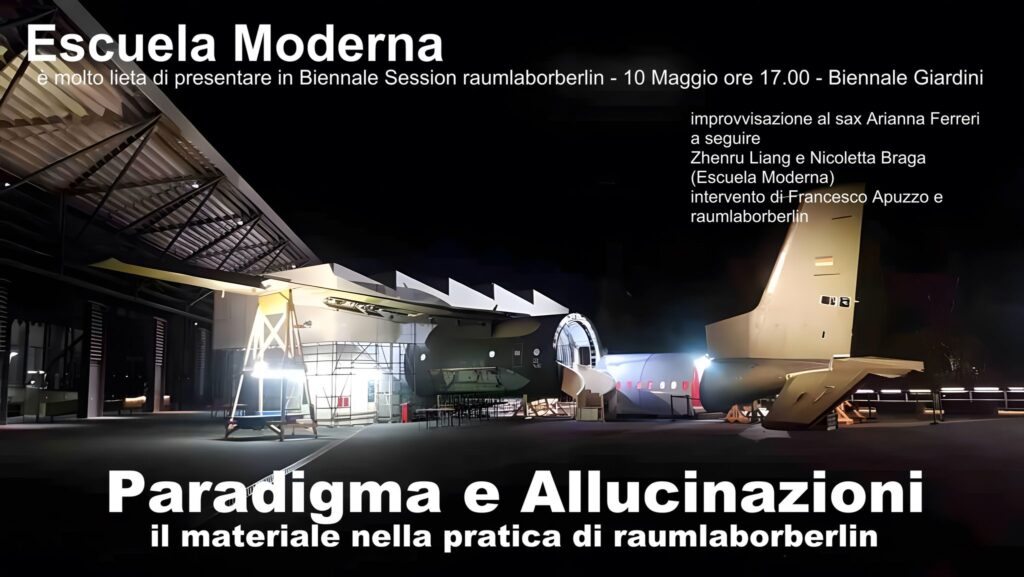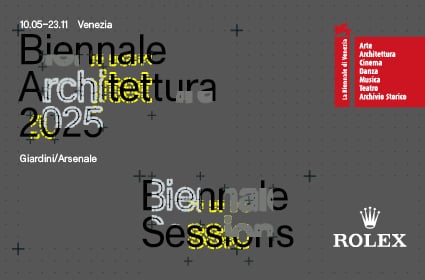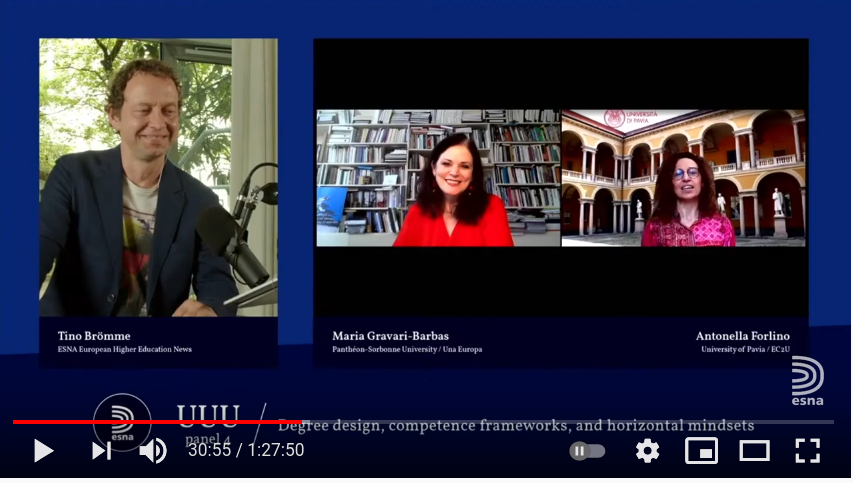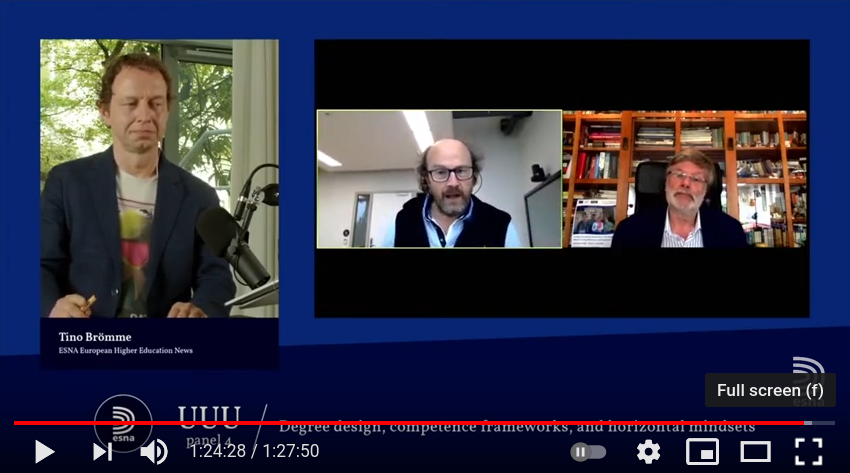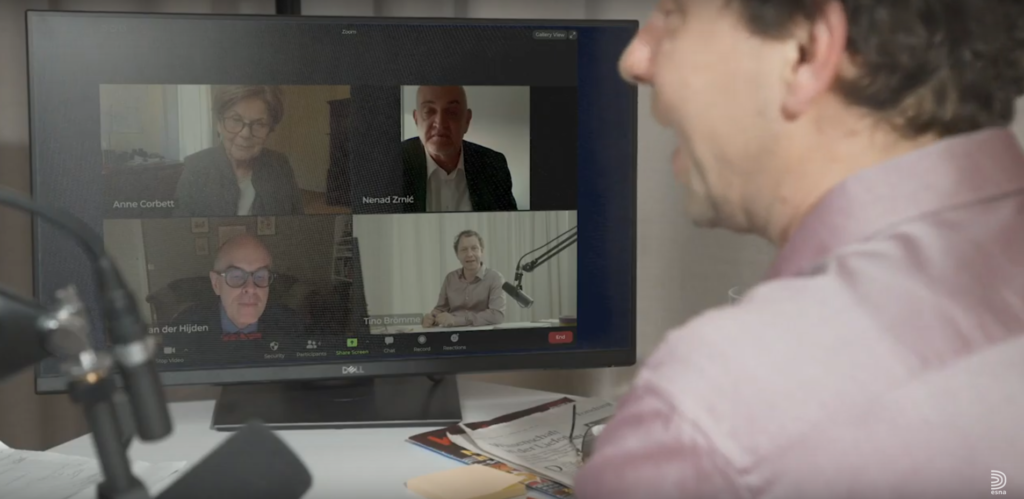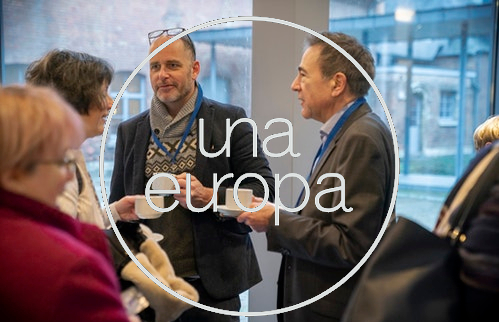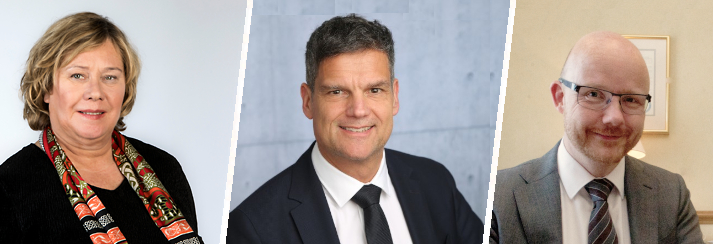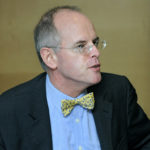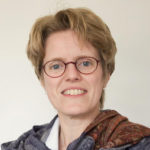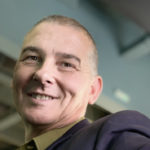Let’s go over to Jörg Niehoff, who is a policy coordinator at the European Commission, and let’s apply a last different perspective on the question we have today. Because the European Commission is now taking the money and putting it into programmes to push forward certain developments. So Jörg, the Transformation Agenda, as it is called, of the European Commission, where is it going? What is the direction?
Jörg Niehoff Yes, thank you to you and good morning to everyone. The Transformation Agenda is not yet there. So let me perhaps bring the context in here. Some of you might have seen that the Commission has published on the 30th September two communications that are relevant also for higher education institutions. Is the one on the European Education Area and the one on the European Research Area. And both put higher education institutions at the core of a transformation of the society. So what we want to do with the stakeholders, in particular the European universities and with the Member States, is to develop by the end of next year, a Transformation Agenda for higher education institutions. And that will not have the TGV speech that Nadine quoted before, perhaps rather long distance that a TGV can pass. And it is something that has to be co-created, co-designed with the stakeholders, with the policy makers at national level.
What we have identified in our communication, are four focus areas that we believe are important. The one is Connectivity among higher education institutions. That what we see also with European Universities, bring them in the context to work across borders on common challenges, but also connectivity with their local ecosystem, because that’s where you have societal impact, where you connect to the labour market, that is extremely important for us.
The second element is Inclusion. We want to have higher education institutions that are more open to a diverse student and research body. And, we had that before, also offer better opportunities for lifelong learning, which again makes it necessary to connect to the local ecosystem. Secondly, Digital and Green. I mean, if you look at all the big policies that we are currently driving, the green and digital transitions are at the core of these things. And I think Covid has made us much more aware of the need for digital transition. And there is also a dedicated communication on the Digital Education Action Plan. The green transition is equally important and there are again higher education institutions at the core of basically building the workforce and the skills and the competences that we need for the green transition. And that is something that I believe also European Universities can drive to a certain extent.
And the last one is Innovation in higher education, in education, in research, in driving transition. So what we expect to see by the end of next year, is somehow an alignment and agreement on what that Transformation Agenda should look like. What are the incentives that we need in terms of funding coming from different programmes, national, European, but also in terms of policy approaches that we need. And what we have learnt from other initiatives, like the HEInnovate initiative that supports the transformation of universities to become more entrepreneurial, more innovative, is that you need the bottom-up approach that we see here, but you also need some of the soft tools, self-reflection questionnaires that allow you to find a common direction where you want to go and the leadership that you need that drives that transition. So you need an understanding where to go, which is the direction, the leadership, and the commitment to drive that change. And today we look at European Universities, but I would really encourage all European universities to look at the other tools the DG EAC provides, be it labour market information experiences. I mean, a lot of the things that you are trying to drive, they also require that you have a better connectivity to the businesses to understand what are the requirements in terms of skills, transversal skills that you need for future jobs.
HEInnovate instrument, how has it been adopted yet? How does it work?
Jörg Niehoff It is something that has been going through a long, long way. It was designed together with the colleagues at the OECD at some point in time, and we have a number of building blocks. At the core, and that is accessible for all institutions, is the self reflection questionnaire that is also on the Internet that has been used by, I think, thirteen-hundred universities across Europe to drive their transition. I think more than twenty-thousand individuals have used that. So this is something that is not a benchmarking, but it is something that allows institutions with training programmes and etcetera to somehow position themselves: Where are we today in becoming or in being entrepreneureal innovative higher education institutions? And what are pathways for us to further improve on that? And of course, you can also use that in the context of European Universities. We have been contacted by some that want to use the tools as well.
The second is, that we are having, together with the OECD, country reviews, where countries approach us directly and say “listen, we want to have your support in analysing our system and showing pathways for development.” We are doing this, for example, currently with Slovenia, and we see that Slovenia is not only using this element ofhow to become more innovative with the educational system. At the same time they look also in labour market relevance of universities. So they are using two of our policies support mechanisms to have assistance in designing their master plan for higher education for the next years. And there we are closing a loop because, of course, the countries use our tools to find a way where they want to develop, that wwould inform the consultations for the Transformation Agenda, and so we somehow create a common directionality of where we go with the European system to make it overall more competitive and more powerful in terms of addressing the challenge that we have.
Jörg, thank you so much. This was a very, very fast summary of the European policy supporting and instructing the European Universities.
We can summarise that we have seen on one hand how inside the European University Alliances, the jobs, the positions, the professions of coordinators, project officers and work package leaders are creating a new network of professionals. We have also seen together with Eva-Maria Feichtner that the University management is trying to create interesting, attractive career paths so that the people who are steering and creating these University Alliances are well prepared and are learning all along the way. And also, we have seen the European Commission is supporting these efforts, is also pushing into a direction for creating new professionals that come out of the universities. So to help the universities develop their educational programmes and their research into a more European and more connected Europe. I want to thank all the participants for being today with us. I can only remind again of Dante, who said that we are here to acquire virtue and new knowledge. And that is what the European University Alliances are doing.
